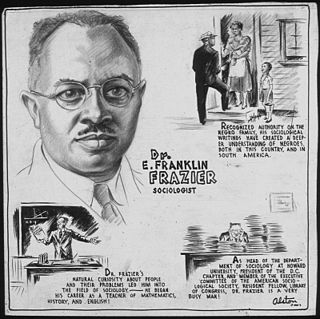A Quote by Frederick Douglass
What I ask for the Negro is not benevolence, not pity, not sympathy, but simply justice.
Related Quotes
I maintain that I have been a Negro three times--a Negro baby, a Negro girl and a Negro woman. Still, if you have received no clear cut impression of what the Negro in America is like, then you are in the same place with me. There is no The Negro here. Our lives are so diversified, internal attitudes so varied, appearances and capabilities so different, that there is no possible classification so catholic that it will cover us all, except My people! My people!
If you teach the Negro that he has accomplished as much good as any other race he will aspire to equality and justice without regard to race. Such an effort would upset the program of the oppressor in Africa and America. Play up before the Negro, then, his crimes and shortcomings. Let him learn to admire the Hebrew, the Greek, the Latin and the Teuton. Lead the Negro to detest the man of African blood--to hate himself.
Pity is for this life, pity is the worm inside the meat, pity is the meat, pity is the shaking pencil, pity is the shaking voice-- not enough money, not enough love--pity for all of us--it is our grace, walking down the ramp or on the moving sidewalk, sitting in a chair, reading the paper, pity, turning a leaf to the light, arranging a thorn.
Flesh eating is simply immoral, as it involves the performance of an act which is contrary to moral feeling: By killing, man suppresses in himself, unnecessarily, the highest spiritual capacity, that of sympathy and pity towards living creatures like himself and by violating his own feelings becomes cruel." "As long as there are slaughterhouses, there will be battlefields.
Ask any Mexican, any Puerto Rican, any black man, any poor person - ask the wretched how they fare in the halls of justice, and then you will know, not whether or not the country is just, but whether or not it has any love for justice, or any concept of it. It is certain, in any case, that ignorance, allied with power, is the most ferocious enemy justice can have.

































